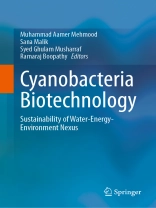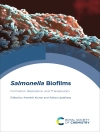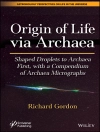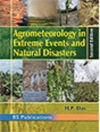“Dive into a Sustainable Future with Cyanobacteria Biotechnology”
Explore the boundless potential of cyanobacteria in “Emerging Trends in Cyanobacteria Biotechnology”. This comprehensive volume, curated by leading experts, showcases cutting-edge research and practical applications across environmental sustainability, human health, and beyond. It will be the book of your choice to discover innovative methodologies and breakthroughs in carbon capture, bioprocessing, and metabolic engineering, illuminating cyanobacteria’s pivotal role in shaping a sustainable future. Whether a researcher, student, entrepreneur, or industry professional, this book is your gateway to interdisciplinary collaboration and ground-breaking innovation.
Join us on a journey to harness the power of cyanobacteria—let’s build a healthier, more sustainable world together. Your next big idea starts here!
สารบัญ
Introduction of the genome biology of cyanobacteria.- Cyanobacterial species of industrial, environmental, and food importance.- Cyanobacterial metabolic pathways of industrial interests.- Metabolic pathway engineering in cyanobacteria for biohydrogen production.- Metabolic pathway engineering in cyanobacteria for environmental applications.- Microalgae and cyanobacteria-derived food and feed products.- Microalgae and cyanobacteria for resource conservation, recycling, and preservation.- Cyanobacteria-based carbon capture and storage.- Cyanobacterial biomass as a feedstock for biochemicals.- Bioprocessing of the wastewater-grown cyanobacterial biomass to non-food bioproducts.- Bioprocessing of the wastewater-grown cyanobacterial biomass to biofertilizers.- Cyanobacteria for the global space biology program; challenges and opportunities.
เกี่ยวกับผู้แต่ง
Muhammad Aamer Mehmood, Ph.D. is a Professor and Group Leader of the Bio Eco Tech Research Cluster at the Department of Bioinformatics and Biotechnology, Government College University Faisalabad, Pakistan. He is also a Founding Executive Board Member and the Secretary-General of the Asian Federation of Biotechnology, Pakistan Chapter. His research team is dedicated to optimizing processes for the sustainable utilization of bio-resources, including wastewater recycling, resource recovery, and the biotransformation of biomass into bioproducts such as biofertilizers, industrial enzymes, biopolymers, and functional foods. They achieve this by using microalgae, cyanobacteria, and fungi as microbial cell factories within a multiproduct biorefinery framework.
Sana Malik, Ph.D. is a distinguished researcher at the Climate Change Cluster (C3) at the University of Technology Sydney (UTS) in Australia. With previous tenures at Government College University Faisalabad in Pakistan and Johns Hopkins University in the USA, Dr. Malik brings a wealth of experience to her current role. Her research is dedicated to advancing carbon-neutral biorefinery pathways for the algae industry within a circular bioeconomy framework. At present, she leverages phenomics to identify elite algal strains for industrial and environmental applications. Dr. Malik leads several innovative projects focusing on strain enhancement through adaptive laboratory evolution, metabolic pathway engineering, and phenomics, integrating cutting-edge technologies such as AI, machine learning, and robotics.
Syed Ghulam Musharraf, Ph.D. is a Professor at the International Centre for Chemical and Biological Sciences at the University of Karachi. He is a distinguished authority in metabolomics, having pioneered numerous innovative applications for industrial, environmental, human health, and food-related purposes. Dr. Musharraf is a member of the Global Young Academy and the Pakistan Academy of Sciences, among various other national and international organizations. His exceptional contributions have earned him several prestigious awards and honors, including one of Pakistan’s highest civil awards, the Tamgha-e-Imtiaz, bestowed by the Government of Pakistan.
Ramaraj Boopathy, Ph.D. is a Fulbright Scholar, a Fulbright Senior Specialist, a World Class Professor-Government of Indonesia, an Honorary Visiting Professor, ITB, Indonesia, Alcee Fortier Distinguished Service Professor, and John Brady Jr. and John Brady Sr. Endowed Professor in Biological Sciences, working at Nicholls State University, USA. His research focuses on bioremediation of hazardous chemicals, anaerobic microbiology, antibiotic-resistant bacteria/genes in the environment, and the design and development of biological reactor systems for wastewater treatment. In addition, he has also been working on clean energy through bioprocessing. During his academic career, he received more than 50 million USD in funding to support his academic and research activities.












